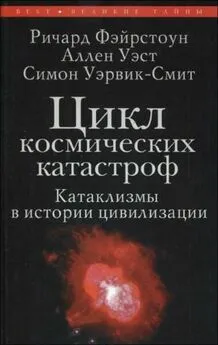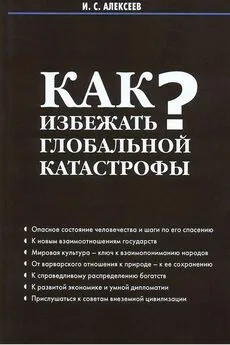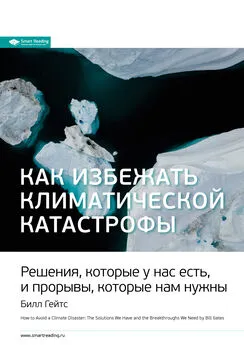Лестер Браун - Как избежать климатических катастроф?: План Б 4.0: спасение цивилизации
- Название:Как избежать климатических катастроф?: План Б 4.0: спасение цивилизации
- Автор:
- Жанр:
- Издательство:Эксмо
- Год:2010
- Город:Москва
- ISBN:978-5-699-39482-1
- Рейтинг:
- Избранное:Добавить в избранное
-
Отзывы:
-
Ваша оценка:
Лестер Браун - Как избежать климатических катастроф?: План Б 4.0: спасение цивилизации краткое содержание
В этой книге Лестер Браун утверждает, что не мировой терроризм, не ядерное или химическое оружие, а именно голод, наступающий в том числе из-за изменения климата, — главная угроза для мира. Угроза вполне реальная: прекращен экспорт зерна из России, мировые цены на пшеницу выросли в два раза. Если и другие крупные экспортеры понесут сравнимые потери из-за природных катаклизмов, всемирный продовольственный кризис будет неизбежен.
У Лестера Брауна, лауреата премии ООН в области охраны окружающей среды, есть план по спасению человечества от гибели. Его суть — снижение потребления (продуктов питания и энергоресурсов), восстановление земельных, водных и биоресурсов Земли, переход на новую, экологически безопасную экономическую модель жизни, глобальная структурная реформа госуправления. Идеи Брауна, изложенные в этой книге, могли бы показаться утопическими — если бы богатейшие люди Америки (вроде Билла Гейтса или Уоррена Баффета), раньше других заметившие угрозу, не вкладывали бы в их реализацию миллиарды.
Для широкого круга читателей.
Как избежать климатических катастроф?: План Б 4.0: спасение цивилизации - читать онлайн бесплатно полную версию (весь текст целиком)
Интервал:
Закладка:
633
“Smoking Bans Around the World”, Reuters, 10 January 2005; “New Zealand Stubs Out Smoking in Bars, Restaurants”, Reuters, 13 December 2004.
634
“Bangladesh Bans Smoking in Many Public Places”, Reuters, 15 March 2005; Информация по Италии взята из: “Europeans Back Public Smoking Ban”, BBC News, 31 May 2006; “England Smoking Ban Takes Effect”, BBC News, 1 May 2007 года; информация по Франции из: Howard K. Koh et al., “Making Smoking History Worldwide”, New England Journal of Medicine, vol. 356, no. 15 (12 April 2007), pp. 1496–1498; “French Cafes Set to Ban Smoking”, BBC News, 28 December 2007; “Bulgaria Votes for Smoking Ban in Public Places”, Reuters, 15 May 2009; Ivana Sekularac, “Smoking Ban Angers Cafes, Smokers in Croatia”, Reuters, 6 May 2009.
635
“Connections between Diabetes and Alzheimer’s Disease Explored”, Science Daily , 11 May 2009.
636
“Cancer Most Lethal Illness in China Last Year”, China Daily , 8 May 2007; Barbara Demick, “China Blames Pollution for Surge in Birth Defects”, Los Angeles Times , 2 February 2009.
637
Sachs and Commission on Macroeconomics and Health, op. cit. note 27.
638
Информация о странах с населением более 1 миллиона человек и естественным приростом населения 0,4 % или менее взята из U. N. Population Division, World Population Prospects: The 2008 Revision, Extended Dataset, CD-ROM (New York: 9 April 2009).
639
Данные о населении Лесото и Свазиленда взяты из: Population Reference Bureau (PRB), Datafinder, электронная база данных — см.: www.prb.org.
640
U. N. Population Division, op. cit. note 54.
641
Там же.
642
Там же.
643
Program for Appropriate Technology in Health (PATH) and UNFPA, Meeting the Need: Strengthening Family Planning Programs (Seattle, WA: 2006), pp. 5–11; цитата взята из All Party Parliamentary Group, op. cit. note 11, p. 22.
644
Janet Larsen, “Iran’s Birth Rate Plummeting at Record Pace”, in Lester R. Brown, Janet Larsen, and Bernie Fischlowitz-Roberts, The Earth Policy Reader (New York: W. W. Norton & Company, 2002), pp. 190–194.
645
Там же.; см. также Ноmа Hoodfar and Samad Assadpour, “The Politics of Population Policy in the Islamic Republic of Iran”, Studies in Family Planning, March 2000, pp. 19–34, and Farzaneh Roudi, “Iran’s Family Planning Program: Responding to a Nation’s Needs”, MENA Policy Brief, June 2002; Информация по темпам прироста населения Ирана взята из публикации United Nations, World Population Prospects: The 2004 Revision (New York: 2005).
646
Larsen, op. cit. note 60.
647
Там же.
648
Там же. Информация по темпам прироста населения взята из публикации: PRB, 2005 World Population Data Sheet, wall chart (Washington, DC: August 2005); U. N. Population Division, op. cit. note 2.
649
Pamela Polston, “Lowering the Boom: Population Activist Bill Ryerson is Saving the World — One ‘Soap’ at a Time”, Seven Days, 21 August 2005.
650
Там же.
651
Там же.
652
Там же.
653
Дополнительные расходы из J. Joseph Speidel et al., Family Planning and Reproductive Health: The Link to Environmental Preservation (San Francisco: Bixby Center for Reproductive Health and Research Policy, University of California, 2007), p. 10, и из J. Joseph Speidel; дискуссия с Дж. Мэттью Роуни, Earth Policy Institute, 16 октября 2007 года.
654
PATH and UNFPA, op. cit. note 59, p. 18.
655
“Bangladesh: National Family Planning Program”, Family “Planning Programs: Diverse Solutions for a Global Challenge (Washington, DC: PRB, 1994); Speidel et al., op. cit. note 69, p. 10.
656
UNFPA, The State of World Population 2004 (New York: 2004), pp. 14–15.
657
United Nations, op. cit. note 61; UNFPA, op. cit. note 72, p. 39.
658
Fund for Peace and Foreign Policy, “The Failed States Index”, Foreign Policy, July/Augustissues, 2005–2009; U. S. Department of State, “Background Note: Liberia”, — см.: www.state.gov/r/pa/ei/bgn/6618.htm, последнее обновление в июне 2009 года; Maria Cristina Caballero, “’Ma Ellen,’ African Symbol of Hope, Returns to Harvard”, Harvard University Gazette, 16 September 2006; “UN’s Ban to Visit Liberia as Blue Helmets Prepare Pullout”, Agence France-Presse, 20 April 2008.
659
Fund for Peace and Foreign Policy, op. cit. note 74; Fund for Peace, “Country Profile: Colombia”, — cм.: www.fundforpeace.org, просмотрено автором 8 июля 2009 г.
660
Commission on Weak States and U. S. National Security, Оn the Brink: Weak States and U. S. National Security (Washington, DC: Center for Global Development, 2004), p. 27.
661
The U. S. Commission on National Security in the 21st Century, Road Map for National Security: Imperative for Change (Washington, DC: February 2001), p. 53.
662
Commission on Weak States and U. S. National Security, op. cit. note 76, pp. 30–32.
663
Organisation for Economic Co-operation and Development (OECD), Agricultural Policies in OECD Countries 2008: At a Glance (Paris: 2008), p. 9; OECD, “Development Aid at its Highest Level Ever in 2008”, пресс-релиз (Paris: 30 March 2009); “The Hypocrisy of Farm Subsidies”, New Yo r k Times, 1 December 2002.
664
“The Hypocrisy of Farm Subsidies”, op. cit. note 79.
665
OECD, “Development Aid”, op. cit. note 79; OECD, OECD Statistics, электронная база данных — см.: stats.oecd.org/wbos, последнее обновление в 2009 году; “South Africa: Weaning States Off Subsidies”, Africa News, 19 August 2005.
666
Julian Alston et al., Impacts of Reductions in US Cotton Subsidies on West African Cotton Producers (Boston: Oxfam America, 2007); OECD, op. cit. note 81; Elizabeth Becker, “U. S. Will Cut Farm Subsidies in Trade Deal”, New York Times, 31 July 2004; Randy Schnepf, U. S. Agricultural Policy Response to WTO Cotton Decision (Washington, DC: Congressional Research Service, последнее обновление 8 сентября 2006 года).
667
Schnepf, op. cit. note 82; Randy Schnepf, Brazil’s WTO Case Against the U. S. Ñîtton Program: A Brief Overview (Washington, DC: Congressional Research Service, 17 March 2009).
668
World Bank, Global Economic Prospects, op. cit. note 6, pp. 11–12.
669
“Ending the Cycle of Debt”, New York Times, 1 October 2004; данные по обслуживанию долгов взяты из публикации: World Bank, Little Data Book on External Debt in Global Development Finance 2007 (Washington, DC: 2007), p. 8; затраты на здравоохранение рассчитаны по данным IMF, World Economic and Financial Surveys: Regional Economic Outlook — Sub-Saharan Africa (Washington, DC: September 2006), pp. 36, 43, из David Goldsbrough, “IMF Programs and Health Spending”, представленной на Global Conference on Gearing Macroeconomic Policies to Reverse the HIV/AIDS Epidemic, Brasilia, 20 ноября 2006 года, и из U. N. Population Division, World Population Prospects: The 2006 Revision Population Database — см.: esa.un.org/unpp, последнее обновление 2007.
670
“G8 Finance Ministers’ Conclusions on Development”, Pre Summit Statement by G-8 Finance Ministers, London, 10–11 June 2005; Oxfam International, “Gleneagles: What Really Happened at the G8 Summit?” Oxfam Briefing Note (London: 29 July 2005).
671
Oxfam International, “The View from the Summit Gleneagles G8 One Year On”, briefing note (Oxford, U. K.: June 2006).
672
World Bank, Global Monitoring Report 2009, op. cit. note 1, p. 8; UN. World Food Programme, “Financial Crisis and High Food Prices”, fact sheet (Рим: материал обновлен 11 июня 2009 г.).
673
World Bank, “Financial Crisis Could Trap 53 Million More People in Poverty”, выпуск новостей (Washington, DC: 12 February 2009); World Bank, Global Economic Prospects, op. cit. note 6, pp. 11–12; Robert Zoellick, “Seizing Opportunity from Crisis: Making Multilateralism Work”, речь в Thomas Reuters Building, Canary Wharf, London, 31 March 2009.
674
Расчеты по затратам на осуществление социальных целей в таблице 7–1 основаны на следующих источниках: информация по всеобщему начальному образованию от U. K. Treasury, op. cit. note 17; кампания по искоренению неграмотности среди взрослых — по оценкам автора; программа предоставления школьных обедов по информации McGovern, op. cit. note 20; помощь детям дошкольного возраста и беременным женщинам — по оценкам автора на основе U. S.’s Women, Infants, and Children program, based on ibid.; репродуктивное здоровье и планирование семьи по информации Speidel et al., op. cit. note 69, and from Speidel, op. cit. note 69; всеобщее базовое здравоохранение по информации Sachs and Commission on Macroeconomics and Health, op. cit. note 27; решение проблемы нехватки презервативов — по оценкам UNFPA, op. cit. note 33, и из Population Action International, op. cit. note 33.
675
Sachs and Commission on Macroeconomics and Health, op. cit. note 27.
Читать дальшеИнтервал:
Закладка:










